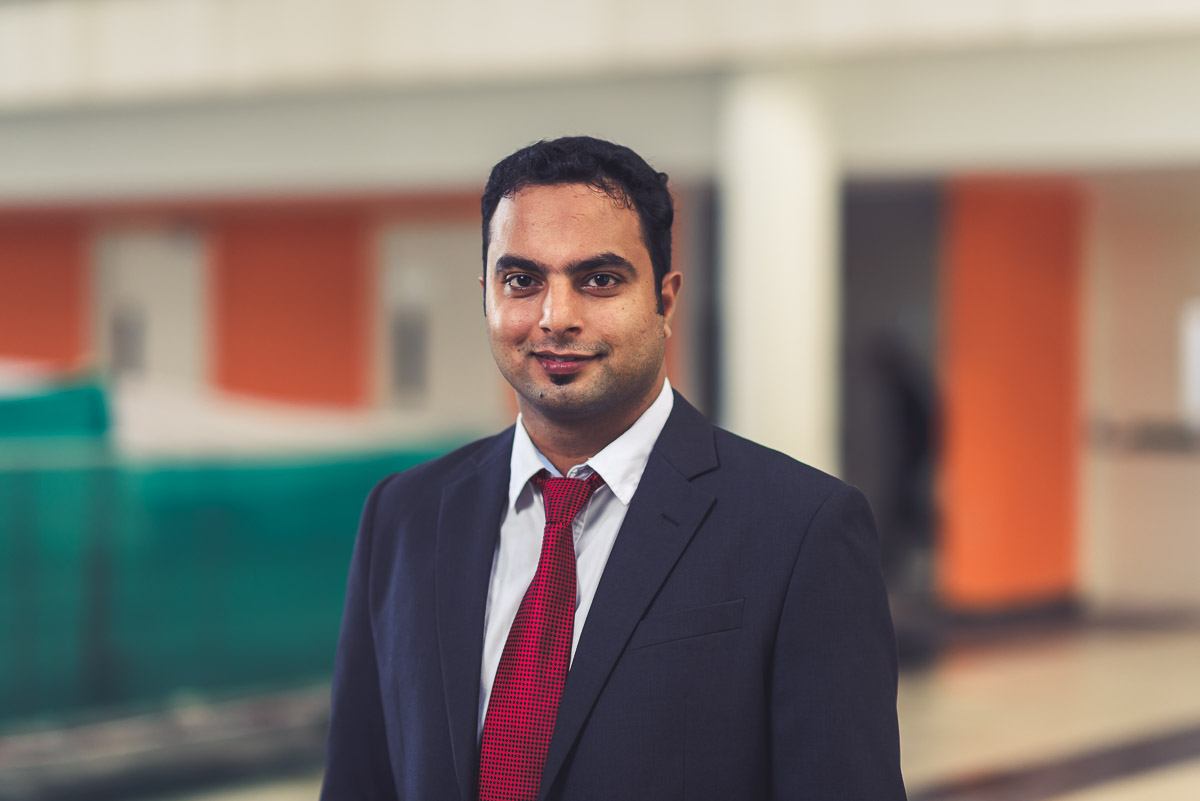APJ Abdul Kalam Memorial International Travel Award to SRM University, AP faculty
SRM University AP, Andhra Pradesh faculty, Dr. Tousif Khan N, Assistant Professor and Head of the Department, Department of Electrical and Electronics Engineering, is to present a paper “Laguerre Neural Network Driven Adaptive Control of DC-DC Step Down Converter” in the renowned International Federation for Automatic Control (IFAC) World Congress to be held in Germany during July 12-17, 2020. Further this research article is also selected for the prestigious APJ Abdul Kalam Memorial International Travel Award by the Automatic Control and Dynamic Optimization Society (ACDOS) chaired by Professor Ravi Gudi of Indian Institute of Technology Bombay.
The research work of Dr. Tousif proposes a novel Laguerre neural network estimation technique for the approximation of unknown and uncertain load function, followed by its subsequent compensation in the adaptive backstepping controller. A detailed design of the proposed estimator and adaptive backstepping controller along with closed loop asymptotic stability have been presented. Further, the proposed control mechanism is evaluated through extensive numerical simulations while subjecting the converter to input voltage, reference voltage, and load resistance perturbations. Additionally, the results are verified by testing the proposed controller on a laboratory prototype with DSP based TM320F240 controller board. The analysis of results reveals that the proposed control methodology for DC-DC step down converter offers a faster transient output voltage tracking with smooth and satisfactory inductor current response over a wide operating range. Dr. Tousif informs, “Under the class of DC-DC converters, the dynamics of DC-DC step down converter are nonlinear in nature and are largely influenced by both parametric and unanticipated external perturbations. In its closed loop operation, obtaining a precise output voltage tracking besides satisfactorily inductor current response is a challenging control objective. Hence, in this regard, this article proposes a solution.”
Dr. Tousif further adds, “The primary objective in DC-DC converters is to transfer the energy among different DC circuits functioning at a specific voltage and current levels. This process of energy transfer is performed by temporarily storing the energy from the input source in an operating mode, followed by releasing it in the other operational mode of the converter. Thus, one level of DC input voltage is converted to another level of average DC output voltage at the load end. Meanwhile, the converter being ideal is expected to consume no energy. Any consumption of energy in the converter interface amounts to direct power loss in the overall supply system. Typically, converters render high input-output conversion.”, His notable research work offers to mitigate these issues, leading to the venerated APJ Abdul Kalam Memorial International Travel Award. Advancing his work in the future, Dr. Tousif will be closely working on the society’s activities with ACDOS as a member for mutual benefit.

